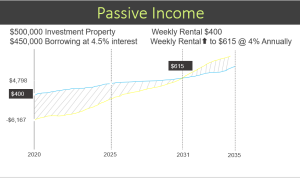Real Estate Mistakes to Avoid as a Buyer sets the stage for this enthralling narrative, offering readers a glimpse into a story that is rich in detail and brimming with originality from the outset.
Buying a home can be a thrilling adventure, but it’s essential to navigate the process wisely. From overlooking crucial inspections to falling for emotional traps, many buyers stumble into common pitfalls that can lead to regret. Understanding these mistakes can empower you to make informed decisions, ensuring your investment is a wise one.
In our ever-evolving world, the importance of adapting to new trends and technologies cannot be overstated. As we navigate through this digital age, it’s crucial to understand how our personal and professional environments are shaped by the rapid advancements in technology, particularly as they relate to communication, work, and social interactions. This article will explore the multifaceted impacts of technology on our everyday lives, delving into how it influences our behavior, relationships, and productivity, and offering insights on how we can effectively adapt to these changes.The first aspect to consider is communication.

In the past, we relied heavily on face-to-face conversations or written correspondence to exchange information. However, the rise of digital communication platforms has transformed the way we connect with others. Social media, emails, and instant messaging apps have made it possible to interact with friends, family, and colleagues instantaneously, regardless of geographical barriers. While this has undoubtedly made communication more convenient, it has also led to a decline in traditional social skills.
People often find themselves communicating more through screens than in person, leading to challenges in developing meaningful relationships.Moreover, the constant connectivity that technology enables can lead to information overload. With the barrage of notifications, emails, and messages, it becomes increasingly difficult to focus on the task at hand. This phenomenon, often referred to as ‘digital distraction,’ can hinder productivity and lead to increased stress levels.
To combat this issue, it’s essential to establish boundaries with technology. Setting specific times to check emails or social media, and creating tech-free zones or periods during the day can help individuals regain control over their focus and mental well-being.Another area where technology has made a significant impact is in the workplace. The traditional nine-to-five job is becoming increasingly obsolete as remote work and flexible schedules gain popularity.
This shift has been accelerated by the COVID-19 pandemic, which forced many organizations to adapt to remote working environments almost overnight. While this transition has its benefits, such as improved work-life balance and reduced commuting time, it also presents challenges. Many employees struggle with the lack of structure that comes with working from home and may find it difficult to separate their personal and professional lives.To thrive in this new working environment, individuals must adopt effective time management strategies.
Tools such as project management software and digital calendars can help maintain organization and ensure that deadlines are met. Additionally, establishing a designated workspace within the home can create a sense of professionalism and help delineate work from personal time. Embracing technology in a way that enhances productivity, rather than detracting from it, is key to success in a remote work setting.As we continue to explore the effects of technology on our lives, we must also consider its role in shaping our mental health.
The rise of social media has allowed individuals to connect with others who share similar interests, fostering communities that may not have been possible otherwise. However, this connectivity can also lead to feelings of isolation and inadequacy, particularly among younger generations. The phenomenon of ‘social comparison’ often arises when individuals compare their lives to the curated highlights of others on social media platforms, resulting in negative self-perception and mental health issues.To mitigate these effects, individuals must approach social media mindfully.
Curating one’s feed to include uplifting and positive content, and taking regular breaks from social media can help create a healthier relationship with these platforms. Additionally, seeking support from friends, family, or mental health professionals can provide the necessary guidance to navigate the complexities of technology and mental well-being.The influence of technology extends beyond our personal and professional lives; it also has profound implications for education.
The traditional model of learning has shifted dramatically with the integration of digital tools and resources. Online courses, educational apps, and virtual classrooms have made knowledge more accessible than ever before. While this democratization of education is commendable, it also presents challenges for both students and educators.For students, the abundance of information available online can be overwhelming. The ability to easily access a wealth of resources can lead to difficulties in discerning credible sources from unreliable ones.
This underscores the need for digital literacy education, equipping students with the skills necessary to navigate the digital landscape effectively. Educators, too, must adapt to these changes by embracing technology in their teaching methods. Incorporating interactive tools and resources can enhance student engagement and create a more dynamic learning environment.As we reflect on the impact of technology on our lives, it becomes clear that adaptability is essential.
The rapid pace of change requires individuals to be proactive in their approach to technology. Embracing lifelong learning, whether through formal education or self-directed exploration, is crucial to staying relevant in an ever-changing landscape. Moreover, fostering a growth mindset can empower individuals to view challenges as opportunities for growth rather than obstacles to success.In conclusion, the influence of technology on our lives is multifaceted, affecting how we communicate, work, and engage with the world around us.
Embracing these changes with a proactive and mindful approach can lead to enhanced well-being and productivity. By establishing boundaries with technology, developing effective time management strategies, and nurturing a healthy relationship with social media, individuals can navigate the complexities of the digital age while maintaining their mental health and sense of self. As we move forward, it is essential to remain adaptable, open to learning, and committed to finding a balance between embracing technology and preserving the human connections that enrich our lives.
FAQ Explained: Real Estate Mistakes To Avoid As A Buyer
What are common mistakes first-time homebuyers make?
First-time homebuyers often overlook important inspections, fail to research neighborhoods thoroughly, and underestimate the total costs involved in the buying process.
How can I avoid overpaying for a property?
To avoid overpaying, research comparable sales in the area, consider hiring a knowledgeable real estate agent, and get a professional appraisal before making an offer.
Is it necessary to get pre-approved for a mortgage?
Yes, getting pre-approved helps you understand your budget, shows sellers you are a serious buyer, and speeds up the purchasing process.
What role does an inspection play in buying a home?
An inspection can uncover hidden issues with the property, allowing you to negotiate repairs or reconsider your purchase before finalizing the deal.
Should I buy a home during a sellers’ market?
While it can be more challenging to buy in a sellers’ market, understanding your priorities and acting quickly can still lead to a successful purchase.






